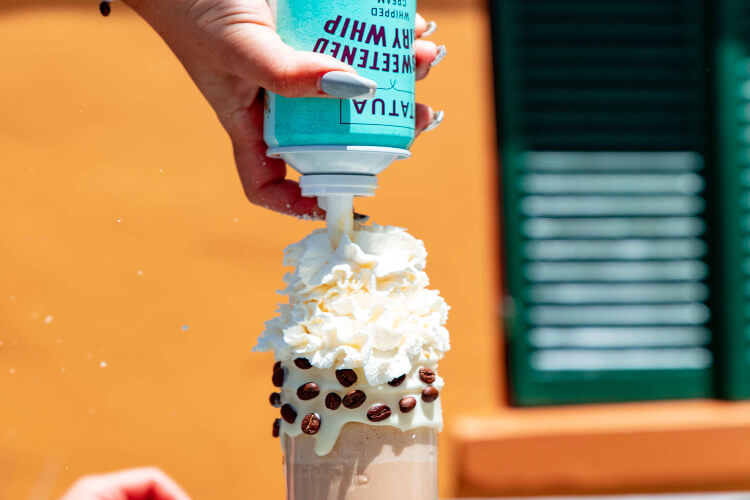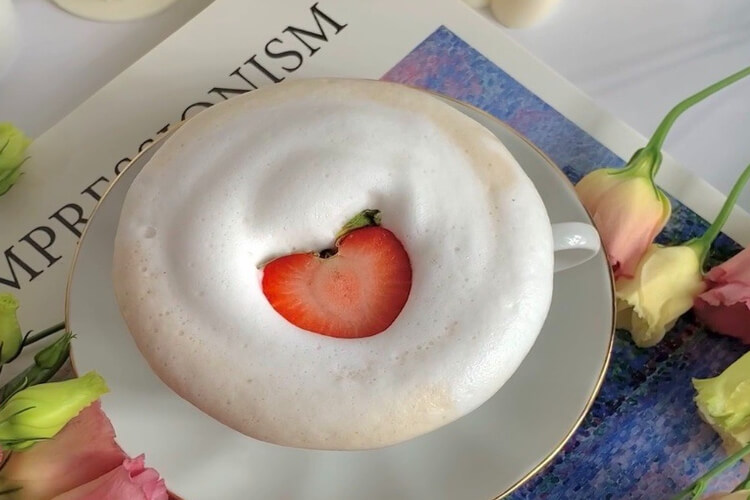
Can you get addicted to decaf coffee?
If you’re anything like us, you love your hot and black coffee with a bit of sugar and cream to sweeten it up. But what if you could have coffee that didn’t contain caffeine? Would you switch to decaf?
In recent years, there has been a growing trend of people preferring decaf coffee over regular coffee. Decaf is made from beans that have been thoroughly washed and dried, which means that there is no caffeine left in them. As a result, people can drink decaf without getting addicted to the stimulant, and it has even been shown to have some health benefits.

So if you’re looking for an alternative to regular coffee that doesn’t contain caffeine, or if you want to try something new, consider drinking decaf!
What is decaf coffee?
Decaf coffee is a type of coffee that does not contain caffeine. Instead, it contains chemicals that help counteract caffeine’s stimulant effects. While decaf coffee is not as robust as regular coffee, it can still provide a boost of energy. Those looking for an alternative to regular coffee may be interested in trying decaf.
How is decaf coffee made?
Decaf is coffee that has been processed without the use of caffeine. It does not contain the same amount of caffeine as regular coffee. Coffee beans are roasted without using caffeine, which then removes the caffeine from the beans.
What are the health risks of decaf coffee?
There are a few health risks associated with drinking decaf coffee. The main concern is that people who drink decaf may be unaware of the caffeine content and may not be getting the same level of caffeine as if they were drinking regular coffee. This can lead to problems like anxiety and sleep deprivation. Additionally, people who drink decaf may be at an increased risk for developing heart disease, liver disease, and type 2 diabetes.
Can you get addicted to decaf coffee?
Decaf coffee is a popular choice for those looking to avoid caffeine. However, many people mistakenly believe decaf coffee is not as caffeinated as regular coffee. In fact, decaf coffee can be just as caffeinated as regular coffee.
If you drink enough decaf coffee, you may develop a caffeine addiction. This can lead to problems such as difficulty sleeping, anxiety, and irritability. If you are having trouble coping with life without caffeine, it may be time to consider reducing your decaf coffee consumption.
Can You Really Get Addicted To Decaf Coffee?
Did you know that decaf coffee has more caffeine than regular coffee? With all coffee’s health, environmental and societal benefits, plus its multifaceted taste profiles and unique aroma, it’s hard to believe how you brew your favorite drink can hugely affect your well-being.
What is decaf coffee?
Decaf coffee is decaffeinated coffee. It is typically made from beans treated with a process that removes the caffeine but leaves the flavor and aroma of the coffee.
Decaf coffee is coffee that has been stripped of its caffeine. Its resultant flavor may be weaker than regular coffee, but it can still be enjoyed.
How much caffeine is in a cup of traditional coffee?
Traditional coffee is made with grounds brewing for hours, along with hot water. This amounts to around 99.7-percent caffeine. Decaf coffee is also made with grounds but with a lower concentration of caffeine, averaging about 86 percent caffeine.
So how much caffeine is in a cup of traditional coffee? It depends on how strong the brew is and how many brewed cups are. A regular cup of coffee with no milk or sugar has about 108 milligrams (mg) of caffeine, while a decaf coffee with no milk or sugar has only about 62 mg of caffeine. Assuming each person drinks 3 cups of coffee daily, that would give an individual 364 mg of caffeine per day—almost half the Daily Value for adults (500 mg).
How else can you get your caffeine fix?
Like many people, you may hesitate to switch to decaf coffee because you think it’s not as good. But actually, you can get your caffeine fix in many different ways. This blog section will explore some of the best ways to get your caffeine fix without drinking coffee.
You can get your caffeine fix by drinking tea. Tea is a great way to get your caffeine fix because it has various flavors and styles. You can also make tea at home using different teas and herbs. You can even find decaf tea varieties that are made without caffeine.
You can also get your caffeine fix by drinking energy drinks. Energy drinks are a great way to get your caffeine fix because they contain many stimulants, including caffeine. Some popular energy drinks include Monster, Red Bull, and 5-Hour Energy.
Finally, you can also get your caffeine fix by eating chocolate. Dark chocolate is a great way to get your caffeine fix because it has high levels of antioxidants which protect cells in the body from damage. You can also find chocolate chips that are low in sugar and calories, which makes them a healthy option for
Pros, Cons, and Alternatives to drinking decaf coffee
Drinking decaf coffee is a popular choice for some people, but is it really addictive? If so, what are the pros and cons of getting addicted to decaf?
Pros of drinking decaf:
- Some people like the taste of decaf more than regular coffee.
- Decaf can be a good choice for people who are sensitive to caffeine.
- It may be easier to stick to a decaf habit if you start drinking only small amounts of coffee.

- It can be helpful for people who want to cut back on their caffeine intake.
- Some studies have found that people who drink decaf may have lower blood pressure levels than people who drink regular coffee.
- Decaf can help you concentrate better when trying to get work done.
- If you are trying not to get pregnant, it may be a good idea to avoid regular coffee and instead drink decaf.
Cons of drinking decaf:
- Decaffeinated coffee is not as strong as regular coffee and can be less satisfying.
- Some people find that they need more caffeine to feel alert.
Conclusion
Yes, you can get addicted to decaf coffee. You may risk developing an addiction if you drink more than four cups daily. Caffeine addictions are common, and decaf is no exception.
However, it’s important to remember that not everyone who drinks decaf develops an addiction. In fact, only about 1 percent of people who drink decaf create a habit of it. If you think you might have a problem with caffeine consumption, talk to your doctor or counselor.
